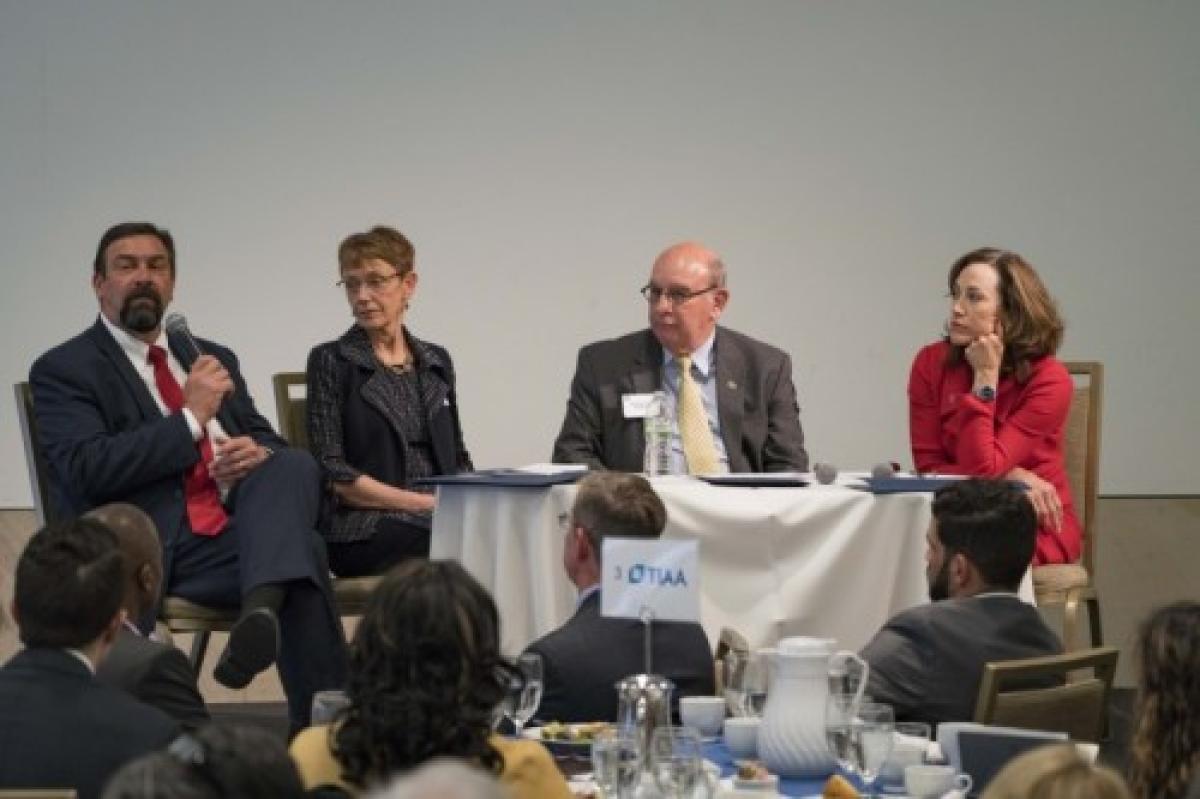To make her point, she pointed to 10 University of Denver deans in attendance, sitting together around a lunch table.
“It’s such a visible sign of all the ways we’re working together,” she said. “Each and every one of these deans is engaged in partnerships in our community.”
Other speakers, drawn from the leadership ranks of Colorado’s top universities, echoed Chopp’s call for a united front. Any steps forward must be taken together, they agreed, arguing that it takes a community to support the students of tomorrow and address academia’s greatest challenges of today. Among the most pressing concerns: negative perceptions of higher education, an ever-changing economy and a growing need to retain the state’s best and brightest minds to supply the workforce.
Addressing her remarks to the civic leaders, business professionals and academic experts in the audience, Chopp said cross-disciplinary collaboration is one of the most critical ingredients in creating the strong professionals who will lead and serve in tomorrow’s ventures. An integrated, hands-on approach to learning will provide students with the skills they will need for the future.
“Some of our research has shown that our alums will change careers up to 20 times,” Chopp said.“The scary part is half of those jobs haven’t even been invented yet. This whole notion that an education lasts four years, then three years or five years — we have to get over that. It is now lifelong.”
In a changing economic environment, universities also must change, Chopp said. That doesn’t mean moving away from the liberal arts. Rather, she said, it means integrating the curriculum to ensure a student’s emotional and cognitive intelligence meets an employer’s desires. The business community can help, she said, by giving input.
“An educational system is fundamentally here to serve your needs,” Chopp told the politicians and business leaders in the crowd, “the needs of our community and the needs of our society. I think we have to realize we are co-creators.”
But on what the governor declared Higher Education Awareness Day, the chancellor made sure to let politicians know they have a role to play, too. Not only should they support institutions of higher education, but they also must help build a solid pipeline to those institutions.
“We all need your partnership for college and professional education, but we can’t forget early childhood and K-12,” she said, noting the recent move to four-day school weeks in some districts. “Students can’t flourish with less attention.”









